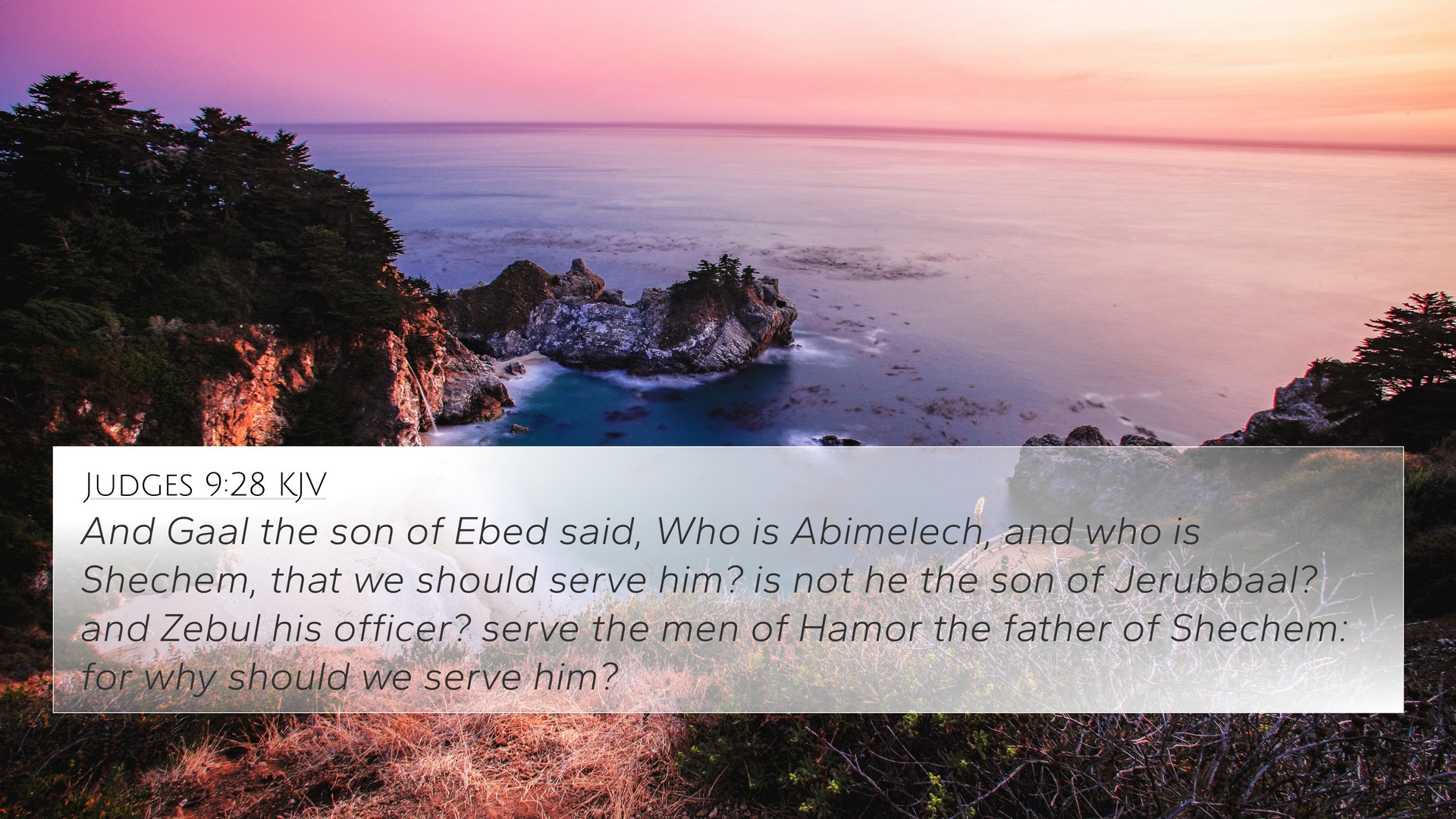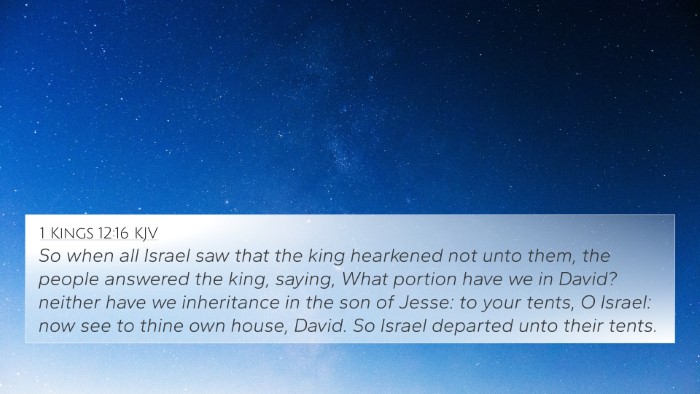Understanding Judges 9:28
Judges 9:28 states: “And Gaal the son of Ebed said, Who is Abimelech, and who is Shechem, that we should serve him? is not he the son of Jerubbaal? and Zebul his officer? serve the men of Hamor the father of Shechem: for why should we serve him?”
Summary of the Verse
This verse captures Gaal's challenge to the authority of Abimelech, questioning his legitimacy as a ruler and suggesting loyalty to local leaders instead. It reflects a broader theme of conflict over power, identity, and allegiance.
Commentary Insights
-
Matthew Henry:
Henry notes that Gaal's words reveal the sentiment of the people towards Abimelech, emphasizing their discontent and desire for local leadership over imposed rule. His questioning of Abimelech's lineage signifies a challenge to his legitimacy, rooted in tribal affiliations.
-
Albert Barnes:
Barnes elaborates that Gaal's speech underscored the growing discontent among the Shechemites, reflecting a yearning for independence from Abimelech's tyranny. His references to Jerubbaal (Gideon) highlight an appeal to a more revered lineage and rightful leadership, suggesting a longing for a return to better governance.
-
Adam Clarke:
Clarke points out that Gaal's rhetoric sparks an uprising against Abimelech, thus showcasing the volatile nature of political authority in Israel at that time. The mention of Zebul, who was a supporter of Abimelech, further emphasizes the political rivalry and division among the people.
Cross-Referencing Biblical Texts
Judges 9:28 can be understood through the lens of inter-Biblical dialogue, highlighting connections with other scriptural passages. Here are several relevant cross-references:
- Judges 8:30-31: Discusses Gideon's family background, linking to Abimelech's claim of legitimacy.
- Judges 9:1-6: Provides context on Abimelech's rise to power through the murder of his brothers, suggesting the motivations behind Gaal's challenge.
- 1 Samuel 8:5: Israel's desire for a king ties to Gaal's challenge of leadership, echoing the theme of rightful governance.
- 2 Samuel 20:1: The uprising led by Sheba, similar to Gaal's revolt, demonstrates recurrent themes of rebellion against poor leadership.
- Luke 22:24-26: Jesus' teaching on servant leadership resonates with the conflict depicted in Judges, emphasizing the importance of authority based on service rather than power.
- Philippians 2:3-4: The New Testament's call for unity and humility contrasts with the discord seen in Judges, providing a thematic connection to leadership ethics.
- Revelation 17:13: The alliances among rulers mirrors the factions in Judes 9, presenting contemporary relevance of the plight against tyranny.
Thematic Connections
Judges 9:28 introduces important themes worth exploring through thematic Bible verse connections:
- Leadership Legitimacy: The question of who has the right to lead continues throughout scripture, inviting deeper examination of biblical principles on authority.
- Cultural Identity: Gaal's expression of loyalty to Shechem presents a reflection on the importance of cultural roots in governance.
- Rebellion and Authority: The dynamics of challenge and authority in Judges can be related to New Testament themes involving the nature of Christ's kingship.
Conclusion
Judges 9:28 serves as a pivotal point in understanding the complexities of leadership, authority, and loyalty in ancient Israel. The inter-Biblical dialogue and cross-references to other scripture enhance our interpretation of the text and reveal deep spiritual insights applicable for today's readers.







